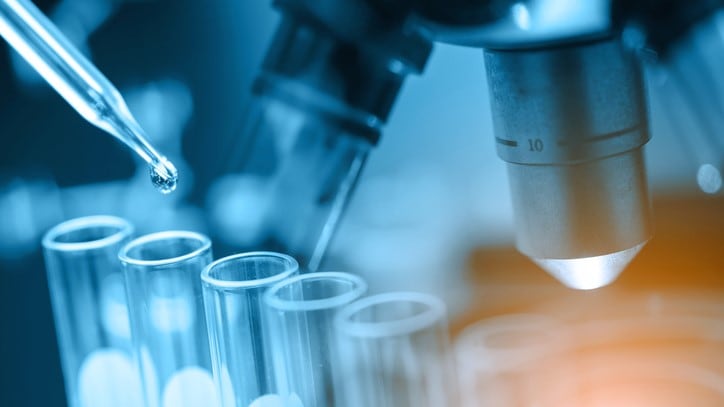1 – WATCH: Geltor poised for APAC expansion with Korea as starting point
CEO of Geltor sees plenty of opportunities for its new vegan collagen and is planning to use Korea as a springboard to expand further into Asia-Pacific.
The California-based biotech company was at in-cosmetics Korea in Seoul to showcase HumaColl21, what it claims is the first biodesigned human collagen for the skin care market.
It is the second product from Geltor after Collume, which was previously known as N-Collage.
Geltor co-founder and CEO, Alex Lorestani, told CosmeticsDesign-Asia that after an “exciting” start in Korea, the company is looking forward to expanding further into the APAC region, such as Japan and China.
“We've made hundreds of proteins in our home in California… We are really looking forward to bringing more protein products to the skin care market. Two is just the beginning. We are having some early conversations with our partners in Korea this week at in-cosmetics Korea about the new ingredients coming out of our portfolio,” said Lorestani.
Take a look at our video for more on our exclusive chat with Geltor.
2 – Zero waste hero: Res Pharma Industriale scores top prize in Korea for recycled silk protein ingredient
Res Pharma Industriale has scooped the Functional Ingredient Gold Award at in-cosmetics Korea for its sustainable silk protein, Moripure Silk Aqua, which is derived from textile wastewater.
The development of Moripure Silk Aqua was part of the company’s desire to expand on its sustainability efforts and produce a solution to water scarcity, said Paolo Siragusa, innovation manager, Res Pharma Industriale.
“Water is the most important part of the cosmetic industry; it is blue gold. Sustainability will continue to be a key topic and water will be at the center of it. People now realise we need to save the water for the next generations.”
Transforming waste
The company eventually discovered a solution outside of the cosmetics industry.
“The textile industry wastes away tonnes of water that is what we call active water. It’s full of ingredients in it, so we found a way to recover this water, purify it and offer to the cosmetics market,” said Siragusa.
3 – “Too much confusion”: Plastic-free glitter firm highlights the importance of certification for biodegradability
Plastic-free glitter firm Bioglitter believes certification is essential to re-educate consumers about biodegradability and remove widespread confusion in the market.
The firm claims to be the creator of the world’s first guilt-free glitters. Bioglitter Pure, is a 100% plastic-free glitter that “decomposes like a leaf” in the natural environment.
Stephen Cotton, commercial director of Bioglitter, told CosmeticsDesign-Asia that before Bioglitter, the materials available to produce a biodegradable glitter could only biodegrade in a compost environment but not in a natural one.
This, he added, was the biggest misconception of biodegradable products.
“Not many people know that there is a hierarchy of biodegradability. Anyone can claim a product is biodegradable if it biodegrades in a compost bin. However, that does not mean it can biodegrade in a natural environment. Glitter, in particular, needs to biodegrade in the natural environment because it often finds its way to nature.”
4 – Biodegradable beauty: Lonza utilises sea plant-based gel to create sustainable sheet masks
Lonza has developed a sustainable solution to disposable facial masks and patches, which it believes will be a game-changer for the category.
The all-natural and biodegradable gel material is made out of agarose, a seaweed found off the shores of Spain and Morocco.
Under the brand Sea+, the company has created five proprietary blends that work best with the agarose gel that tackle concerns from anti-ageing to acne.
According to Jennifer Clancy, head of global marketing, Lonza is the largest supplier of agarose.
“Agarose is often challenging to use in personal care because it is a very expensive seaweed. It is important for us to introduce agarose to the market in a way that customers can afford and be disruptive in important categories like facial masks – using it as a delivery system, not just an ingredient.”
5 – Greentech launches anti-hair loss active derived from traditional Asian ingredient
Greentech was at in-cosmetics Korea this year to mark the official launch of its new anti-hair loss active ingredient, Hairiline that claims to prevent hair loss and boost hair density.
The French biotech company plans to launch the ingredient globally next year at in-cosmetics Global. In the meantime, it is currently only available in Korea.
“We launched in Korea first because we believe it’s a market with a lot of potential for the ingredient. Just three days at in-cosmetics Korea and we can already see the demand because there are many people coming and asking us about it,” Tatiana Bourrelier, export manager, Greentech.
The new active is derived from the roots of the Lindera strychnifolia, a small shrub native to South East Asia.
“In SEA, it is known as the elixir of life and is a symbol of longevity. It’s very rich in polyphenols and tannins mostly, so that’s why we decided to develop it for our active ingredient,” said Bourrelier.





